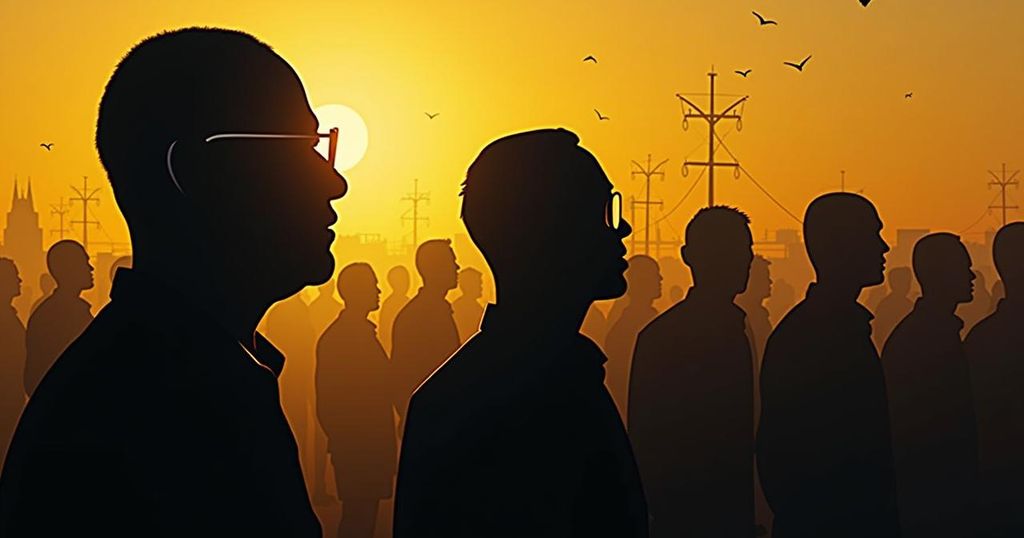Amnesty International Urges Accountability for Human Rights Violations in DRC
Amnesty International has called on the international community to hold DRC President Felix Tshisekedi accountable for ongoing human rights violations. The organization criticized the government’s inaction amidst worsening conditions and urged the end of the state of siege and protection for journalists and activists. Over 25 million citizens in the DRC need humanitarian assistance due to conflict-induced instability.
On September 25, Amnesty International publicly called upon the international community to hold Felix Tshisekedi, the President of the Democratic Republic of the Congo (DRC), accountable for the persistent human rights violations occurring under his administration. In a recent address to the United Nations General Assembly, President Tshisekedi was criticized for neglecting the deteriorating human rights conditions in the country, as highlighted by Jean Mobert Senga, the organization’s DRC researcher. Senga’s report underlines the government’s failure to uphold fundamental human rights amid escalating crises in the nation, particularly emphasizing the role of armed groups in the eastern regions, allegedly supported by Rwanda. President Tshisekedi himself acknowledged the humanitarian crisis driven by the resurgence of the M23 terrorist group, which he linked to foreign assistance from Rwanda, and called for targeted sanctions against the neighboring country. Amnesty International condemned the government’s response to the human rights crisis, reiterating the demand for President Tshisekedi to end the state of siege that has been in place in North Kivu and Ituri since May 2021. The organization further urged an cessation of threats and arbitrary detentions targeting journalists, activists, and political opponents, and called for enhanced transparency in cases of sexual violence occurring within prison systems. Senga remarked that despite ongoing appeals for justice, the Congolese government has largely failed to prosecute both domestic and foreign perpetrators of international crimes. He stated that powerful entities continue to act with impunity, perpetuating a cycle of violence. According to recent statistics from the UN Office for Coordination of Humanitarian Affairs (OCHA), over 25.4 million citizens in the Democratic Republic of the Congo require humanitarian assistance, compounded by ongoing conflicts that have displaced more than six million individuals. The prevailing conditions in the DRC reflect numerous infringements of international human rights and humanitarian principles, with violations of the International Covenant on Civil and Political Rights (ICCPR) concerning freedom of movement and the right to personal liberty and security. The actions of Congolese soldiers and associated militias against civilians raise serious concerns regarding adherence to humanitarian law.
Amnesty International, an established human rights organization, has continuously monitored and reported on the state of human rights in the Democratic Republic of the Congo. The DRC has a documented history of human rights abuses, particularly amid conflicts exacerbated by the involvement of foreign powers and the actions of various armed groups. President Tshisekedi has faced mounting scrutiny regarding his government’s efficacy in addressing these violations and ensuring the protection of fundamental human rights, especially in regions afflicted by violence and instability. The international response to these issues is critical, as the DRC remains in a humanitarian crisis affecting millions of its citizens.
In conclusion, Amnesty International’s assertion for accountability from President Felix Tshisekedi highlights the urgent need for effective governance in the Democratic Republic of the Congo. The organization’s demands underscore the necessity for immediate action to address human rights violations, halt arbitrary detentions, and ensure that perpetrators of violence are brought to justice. The significant humanitarian crisis, affecting over 25 million individuals, further exemplifies the dire need for reforms and international pressure on the DRC government to uphold human rights and international law.
Original Source: www.jurist.org




Post Comment